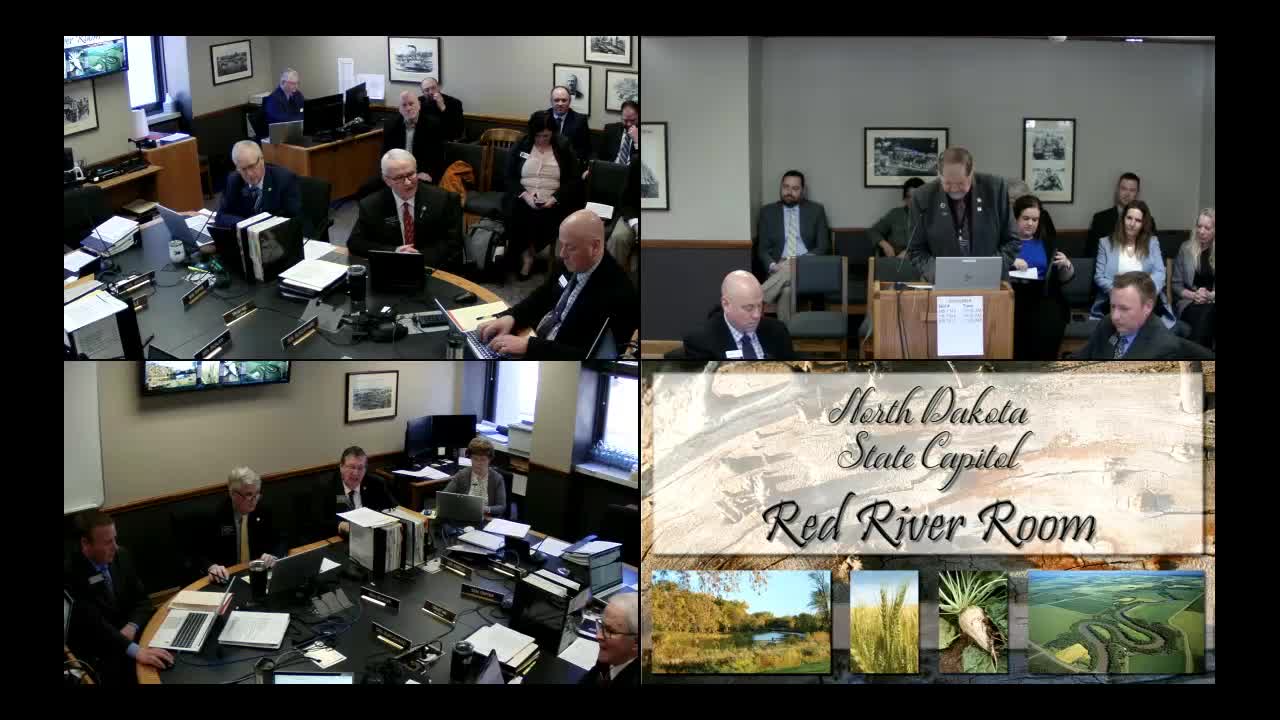Regional planning councils ask Legislature for staff funding to deliver rural projects
Get AI-powered insights, summaries, and transcripts
Subscribe
Summary
Representatives of North Dakota’s eight regional planning councils urged the Senate Appropriations Government Operations Division to fund staff positions under House Bill 1524 so rural communities can apply for and implement infrastructure, housing and workforce grants.
Supporters of House Bill 1524 told the Senate Appropriations Government Operations Division that funding regional planning councils to hire staff would accelerate project delivery across rural North Dakota and help communities apply for new state programs.
Representative Dave Munson, the bill’s prime sponsor, said regional councils were created by the Legislature but “we really never funded them very well.” He asked the committee to consider increasing the appropriation from the Senate’s $2,400,000 figure toward the original larger request.
Priscilla Herrera, executive director for Service‑Based and Planning Council (Region 2), said the central problem is local capacity: “We don't have the people to do the work, to advance the visions of our communities.” She told senators that fewer than half the state’s counties have dedicated economic‑development organizations and many small towns lack staff to apply for and manage complex grants.
Testimony described a tiered funding proposal: $2,400,000 (current level) would provide a baseline; supporters asked for at least $5,750,000 and some initially sought about $8,000,000. Witnesses said $4,000,000 would support two rural development full‑time equivalent staff per region, and the sponsors estimated roughly $125,000 per FTE per year (salary, fringe and overhead).
Taryn Doerr of Roosevelt‑Custer Regional Council said the bill “is not for regional councils, but it is for the communities that we serve,” adding that councils act as boots on the ground to help small towns apply for housing, workforce and infrastructure funds and to coordinate project implementation. Multiple councils offered case studies — including childcare and housing developments — showing that regional staff coordinate planning, manage bids, integrate multiple funding sources and close financing gaps.
Several statewide organizations — including the North Dakota Housing Finance Agency, the North Dakota League of Cities and agricultural groups — testified in support and urged a larger appropriation, saying councils multiply state investments by helping more communities compete successfully for grants.
Committee members asked about program administration, whether regional councils would hire staff locally, reporting and accountability, whether the funding would be ongoing, and how the Department of Commerce would coordinate. Witnesses said each council would hire and house staff locally, would submit work plans and agreed the funding could be continued if successful.
The hearing included repeated requests to expand the appropriation to meet staffing needs; no formal committee votes were recorded during the hearing.
